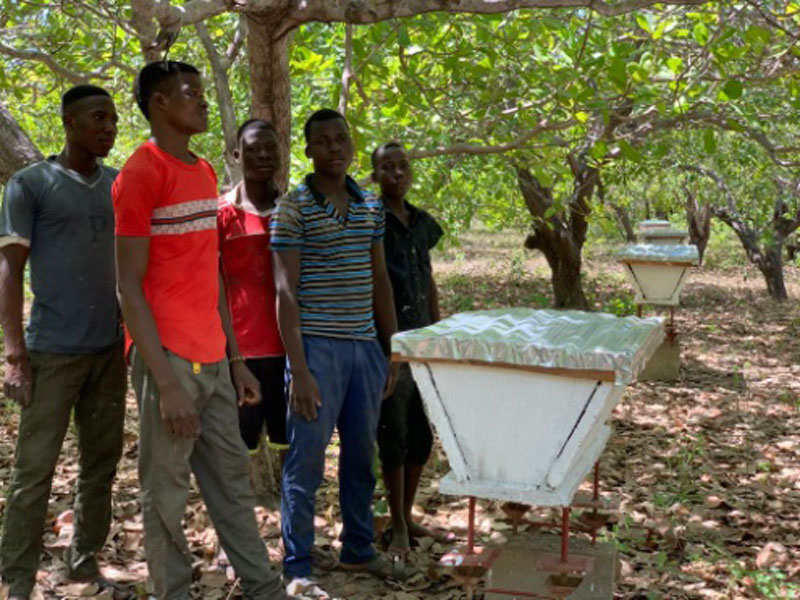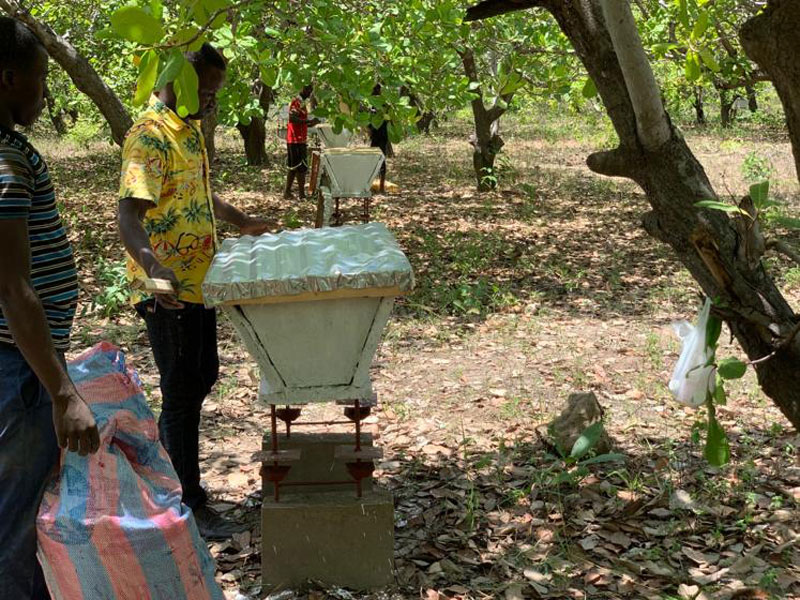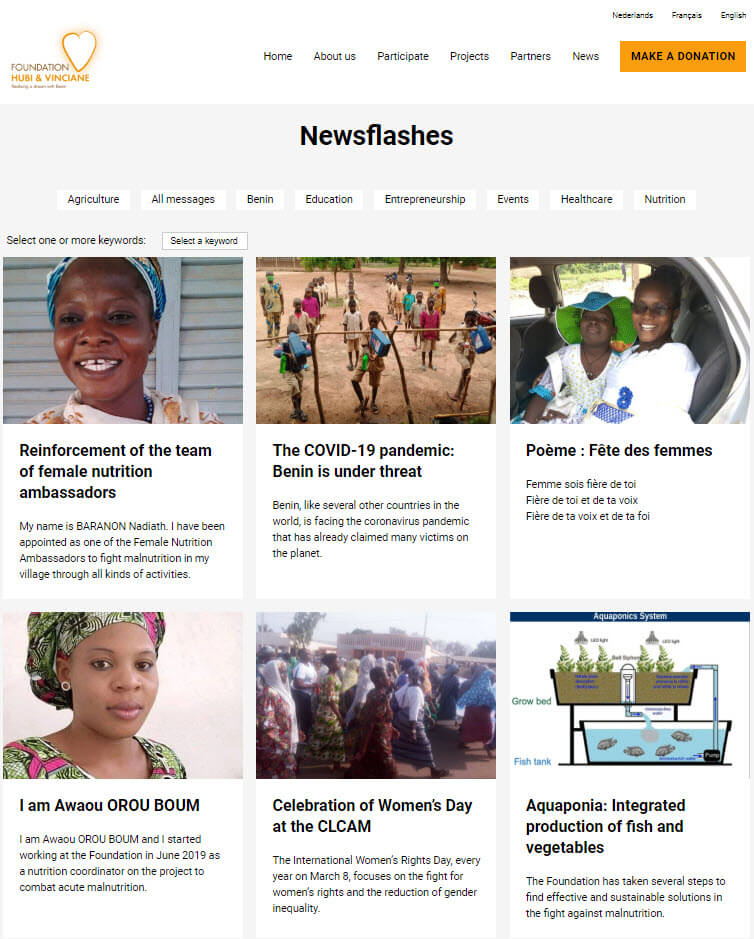Honey project in Sokounon: on the way to organic food
Honey is derived from the nectar of flowers, processed by bees. It contains more than 80% carbohydrates (glucose, fructose, etc.). It is, therefore, a high-energy food.
In the Beninese tradition, honey is mainly known as a medicine. People use it for its healing power in case of wounds. They use it to bring down fever and to facilitate dentition in infants (applying honey on the gums).
Honey is also known for its use in the cosmetics industry, for example in ointments and bath soaps. Besides, honey is used as an additive to produce the sweet taste as a substitute for sugar in many meals such as porridge.
Because of its multiple uses, honey consumption is high in Benin. Until a few years ago, honey was only harvested from natural honeycombs in the woods. Bees were considered wild animals. Honey was hence a rather rare thing… Today, scientific progress in agronomy and beekeeping has made it possible to harvest much more honey.
The Sokounon farm is an excellent example of this. Apiculture, the production of honey and the breeding of bees, has become one of the flagship activities of the farm. It not only satisfies the population’s demand for honey by providing them with better quality honey but also increases the farm’s turnover.
The SOKOUNON farm, in collaboration with the Hubi and Vinciane Foundation, has invested heavily in the construction of beehives to increase production. In addition, Professors Dr Rony Swennen and Dr Seppe Deckers from the University of KU Leuven also brought their skills and experience in the field of beekeeping during a working visit. With their support, the production per hive was increased significantly: from 4 to 8 litres per hive. Also, several pieces of equipment were made available to the farm for the development of the beekeeping sector.
Finally, since 2015, each year, more than 80 people (men and women) are trained in beekeeping at the Sokounon farm. The farm sells more than 200 litres of honey per year, but demand remains higher than supply, which requires even more support to meet the expectations of the Beninese population.



